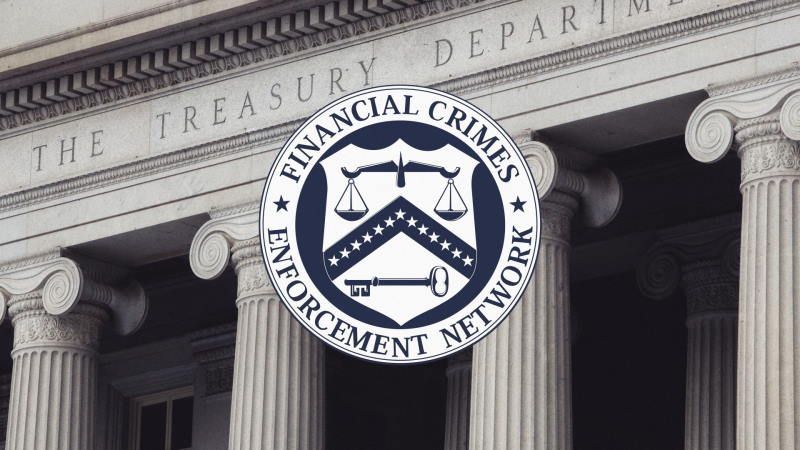Should you worry about proposed FinCEN regulations on crypto wallets?

FinCEN is crafting legislation that will require banks to keep records on many crypto wallet holders but should you care?
For hardcore Bitcoiners, increased adoption has been a double-edged sword. The price of Bitcoin (BTC) has skyrocketed with individual investors trading in disparate ways as well as increased institutional investment. And BTC use-cases are increasing.
But this has bought increased scrutiny. Governments have accepted they can’t kill crypto, so they are now seeking to bring it under regulatory control. It’s unclear how far this will go, but cryptocurrency users are already expressing concern about new Financial Crimes Enforcement Network (FinCEN) regulations on crypto wallets.
What Are FinCEN’s Proposed Regulations?
The ruling essentially requires “money services businesses” (banks and exchanges) to submit reports to the treasury and keep records of any transactions over $10,000 involving convertible virtual currency or digital assets with legal tender status.
Additionally, it would require businesses to keep records of any customer transferring more than $3,000 to an “unhosted or otherwise covered wallet.” This would mean any wallet that the customer is in direct control of, including paper wallets, or most cold storage wallets.
The ruling is designed to close what FinCEN believes is a gap in existing AML regulations. It will theoretically prevent US residents from hiding their assets from the government, and make it harder for criminals to operate.
So far, so fair — at least on the surface. But there are problems brewing. Normally these rulings require months of consultations but in this case, the crypto industry was given just two weeks to submit comments. This has led to accusations that FinCEN is attempting to rush through legislation on Bitcoin detractor Steve Mnuchin’s orders, without considering its wider impact.
FinCEN’s Requirements Could Hamper DeFi Adoption and Cripple Centralized Exchanges
Despite the short comment period, the crypto industry’s response has been robust. One particularly in-depth document is the 11th-hour official response filed by centralized exchange Kraken. This is an interesting example because Kraken has always worked hard to remain on the right side of FinCEN and is a good example of a company with “nothing to hide.”
Kraken's response argues that the regulation is a substantial departure from existing law and forces regulated entities to expend significant resources to enforce it. It additionally argues that the law would subjugate cryptocurrency exchanges to the control of traditional money services businesses. However, the key point made by Kraken is that 15 days is not enough time to provide a calculation of the costs.
The company nonetheless made a decent attempt to calculate costs. They estimate that it would take 18 months to put the correct infrastructure in place and that this would represent an enormous logistical challenge. They posit that it would force money services businesses who want to ensure compliance to either track every transaction or stop doing business with US citizens altogether. This would essentially outlaw cryptocurrency, and make it harder to track illicit money flows.
Aside from the challenges it would pose to regulated centralized exchanges, it could also make it impossible for DeFi exchanges like UniSwap to do business in the US. Smart contracts have no counterparty or single organization attached to them. This could mean that they are unable to interact with the US financial ecosystem, meaning that wallets that do interact with them may not be usable in the US. This, again, could amount to outlawing one of the most innovative uses of crypto in the United States.
The Regulation Will Be Challenged
While FinCEN’s proposal is clearly designed to be rushed through before the next administration, there are already legal challenges mounting. These are based on the short period for comments and a potential breach of the 4th amendment, which protects against “unreasonable search and seizures.”Setting aside legal challenges, there are also doubts over the practicality of the ruling. It would generate an enormous amount of data, with Coinbase alone generating over 7,000 reports per day. Additionally, it would likely be ineffective in capturing illicit funds as the majority are currently lying dormant. In short, crypto traders shouldn’t panic. But keeping an ear to the ground is a good idea.




